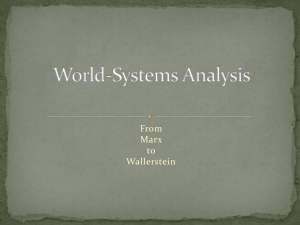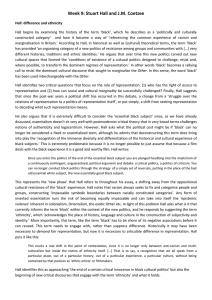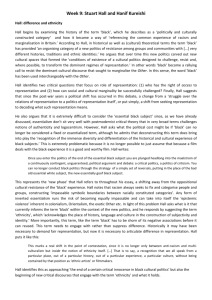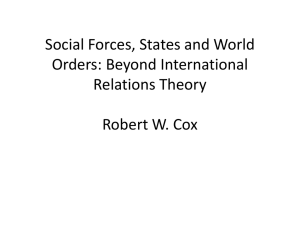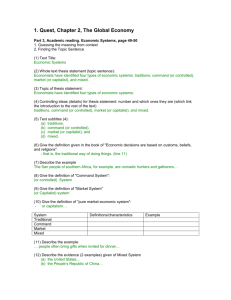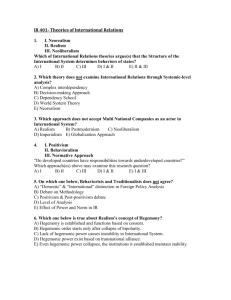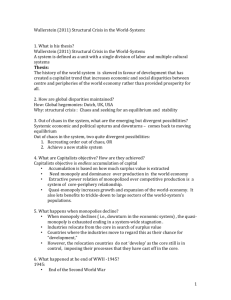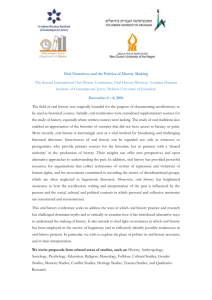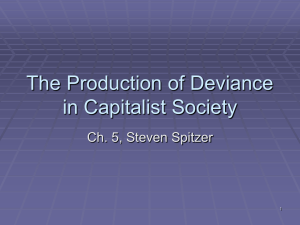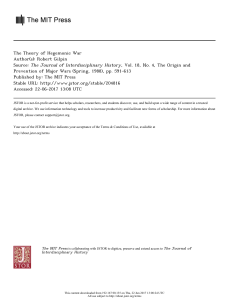Midterm Exam
advertisement
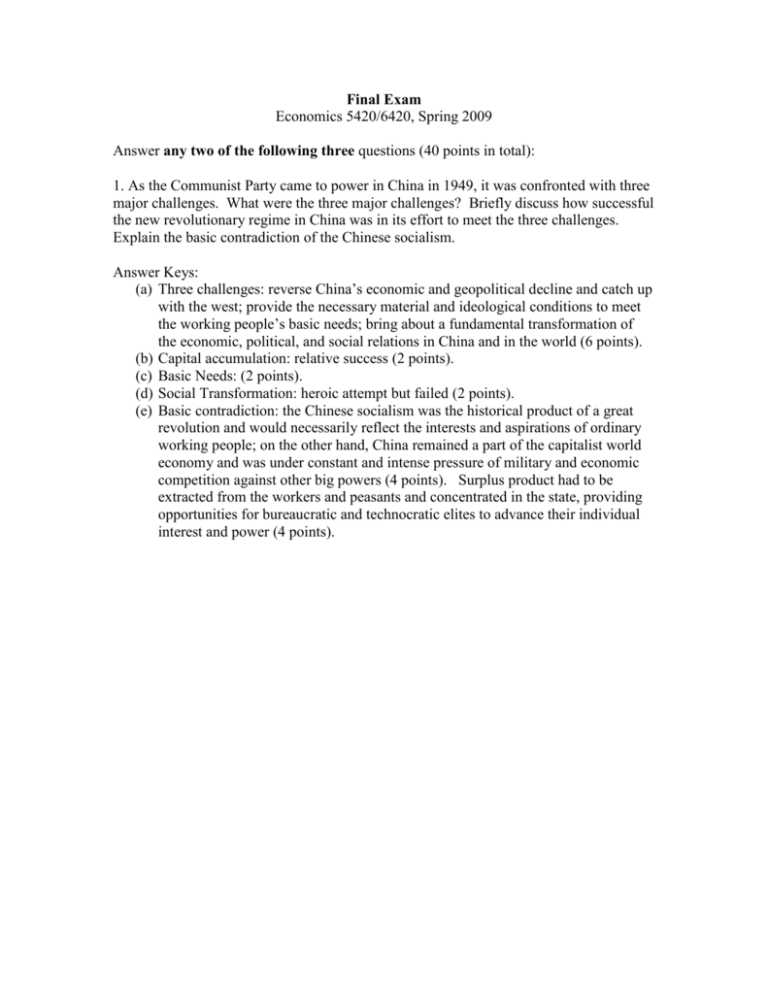
Final Exam Economics 5420/6420, Spring 2009 Answer any two of the following three questions (40 points in total): 1. As the Communist Party came to power in China in 1949, it was confronted with three major challenges. What were the three major challenges? Briefly discuss how successful the new revolutionary regime in China was in its effort to meet the three challenges. Explain the basic contradiction of the Chinese socialism. Answer Keys: (a) Three challenges: reverse China’s economic and geopolitical decline and catch up with the west; provide the necessary material and ideological conditions to meet the working people’s basic needs; bring about a fundamental transformation of the economic, political, and social relations in China and in the world (6 points). (b) Capital accumulation: relative success (2 points). (c) Basic Needs: (2 points). (d) Social Transformation: heroic attempt but failed (2 points). (e) Basic contradiction: the Chinese socialism was the historical product of a great revolution and would necessarily reflect the interests and aspirations of ordinary working people; on the other hand, China remained a part of the capitalist world economy and was under constant and intense pressure of military and economic competition against other big powers (4 points). Surplus product had to be extracted from the workers and peasants and concentrated in the state, providing opportunities for bureaucratic and technocratic elites to advance their individual interest and power (4 points). 2. From the 1980s to the early 2000s, global capitalism was under the dominance of neoliberal institutions and policies. What is neoliberalism? Give some examples of neoliberal policies. What were the structural contradictions of the neoliberal global economy? The expansion of the global economy in the early 2000s was characterized by major imbalances in the US and the Chinese economy. Comparing the macroeconomic imbalances in the US and in China and explain why these imbalances were unsustainable. Answer Keys: (a) Neoliberalism: A global capitalist counter-offensive against the working class gains in previous decades (2 points). Examples: monetarism; labor market flexibility; trade and financial liberalization (3 points). (b) Structural Contradictions: under neoliberalism, all components of global effective demand are being depressed, threatening to lead to a global economic downward spiral (5 points). (c) US: economic growth led by debt-financed consumption; large and rising current account deficits (5 points). (d) China: economic growth led by investment and exports; excessive investment led to excess capacity and massive demand for energy and materials (5 points). 3. Over the history of the capitalist world system, the United Provinces of Holland, the United Kingdom, and the United States, have been the hegemonic powers over different historical periods. Explain why the successive hegemonic powers have played an indispensable role in the operation and expansion of the capitalist world system. Many argue that the US hegemonic power is in decline. Discuss the evidence and arguments that the US hegemonic power is in decline. Can China replace the US to become the world system’s next hegemonic power? How about other big powers (India, Russia, European Union)? Discuss each big power’s advantages and disadvantages. If the US hegemonic power is in decline but no other big power can realistically replace the US to become the next hegemonic power, what could be the implications for the future of the capitalist world system? Answer Keys: (a) Hegemonic power: The capitalist world system must be an interstate system; but unregulated interstate competition undermines the system’s long-term common interest; hegemonic powers are required to regulate the systemic interest (6 points). (b) US Hegemony: relative decline of GDP; finance; military; lack of ability to promote systemic interests (4 points). (c) China; India; Russia; EU; advantages and disadvantages (8 points). (d) Systemic chaos or a post-capitalist world government (2 points).

